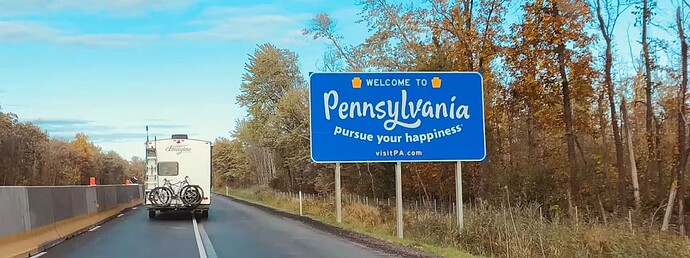Worth considering for hosts: Offering a pickup or drop off for a sitter might make your sit more attractive, depending on how challenging it is to get to your place (especially if public transit is limited or nonexistent or available only during certain hours, and because arriving with baggage can be more challenging if there’s a significant distance to be covered between the stop or station and your home, and/or if you live down an unpaved road or such).
My experience is, many of my hosts have volunteered pickups and drop offs for airports and train stations. One set of hosts, for whom I’ve repeat-sat, even offered to pick me up an hour+ away, from where I planned to sightsee before their sit. Instead — because I thought their offer above and beyond, and I didn’t want to take advantage — I boarded a tour bus from London and toured the Cotswolds, then continued the tour to Stratford-upon-Avon. After the tour, I didn’t return with the bus to London. I had brought my luggage with me (plenty of room on the tour bus), so I then checked into a hotel and did more sightseeing. Then my hosts picked me up the next day at my hotel. When I left, one time they dropped me off at the train station and another time they dropped me off at the next town, where I planned to stay on a bit and sightsee.
Another set of hosts, who lived an hour+ drive from a U.S. airport, offered to cover my $80 USD round trip airport shuttle ride, unasked. Then they met me at the shuttle drop off closest to their home and took me to dinner before we headed to their home. When I left, they dropped me off at the same stop. (I also dropped them off and picked them up at the shuttle stop, because they loaned me a car.)
In case it helps hosts who are considering loaning a car, I mention my driving experience in my sitter profile, which includes extensive cross country road trips, driving an RV and such.
My experience is, some hosts won’t mention offering a car in their listing. But some have volunteered it during our video chat. That might be because some hosts will loan their car only if they feel comfortable with the right sitters.
And separately, I did one sit where I actually had my own car, but my hosts offered theirs after I mentioned that I might take their dog to the beach, 1.5 hours away, one way. They even gassed up their car, because they said I shouldn’t have to pay to take their dog on adventures. Because they were thoughtful, I offered to drop them at the airport.
![]()
